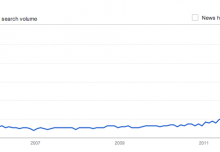Did you know that healthcare providers can tap into Google to estimate flu activity based on Google searches for flu-related terms on a state-by-state level? This is but one example of the benefits of big data in healthcare. Below are a few more:
- Identifying patterns for diagnostic purposes – While doctors are skilled at diagnosing common cases, it’s not uncommon for a patient to present symptoms that don’t quite fit. The healthcare industry has access to a huge number of medical records, allowing doctors to analyze aggregate healthcare data analytics in search of patterns and clues that could help them hone in on the correct diagnosis. Imagine being able to drill your way through millions of medical records to find similarities and several potential diagnoses to consider — all in a manner of minutes.
- Preventing readmissions – Government agencies and insurance companies use readmission rates as a quality measure for hospitals, prompting hospitals to work on reducing their readmission rates. Healthcare business intelligence analytics and dashboards are used to help administrators monitor their readmission rates along with any preventative interventions that have been made. Not only is preventing readmissions the right thing to do for patients, it can also reduce the facility’s costs by helping it to avoid Medicare penalties for readmissions.
- Processing clinical information – Penn State Hershey Penn is currently building a new data center focused on big data for the healthcare industry. This data center will help Penn State medical researchers with the Penn State Hershey Institute for Personalized Medicine to better understand large amounts of clinical information and patient samples.
- Mining data from wearable devices – Are you wearing a fitness tracking device? Is your smartphone counting your steps and tracking your sleep? Wearable devices are both popular and useful. For example, a recent partnership between Intel and the Michael J. Fox Foundation for Parkinson’s Research will be mining data from wearable devices to look for Parkinson’s markers that might not otherwise be picked upon by doctors or loved ones.
From gauging flu activity to diagnosing complex medical cases, preventing readmissions, processing large amounts of clinical data, mining data from wearable devices, and beyond, the healthcare industry is already benefitting from big data — and the future looks promising.
Works Cited:
- Smart Data Collective, “Optimizing Health Care With Big Data,” – http://smartdatacollective.com/anandsmartdata/290946/optimizing-health-care-big-data
- ZDNet, “Big data means big medical breakthroughs,” –http://www.zdnet.com/article/big-data-means-big-medical-breakthroughs/
- Google.org, “Flu Trends,” – https://www.google.org/flutrends/us/#US
- TechCrunch, “Healthcare’s Big Data Opportunity,” – http://techcrunch.com/2014/11/20/healthcares-big-data-opportunity/
- HealthCatalyst, “Leveraging Healthcare Analytics to Reduce Heart Failure Readmission Rates,” – https://www.healthcatalyst.com/reduce-heart-failure-readmissions-with-healthcare-analytics/



